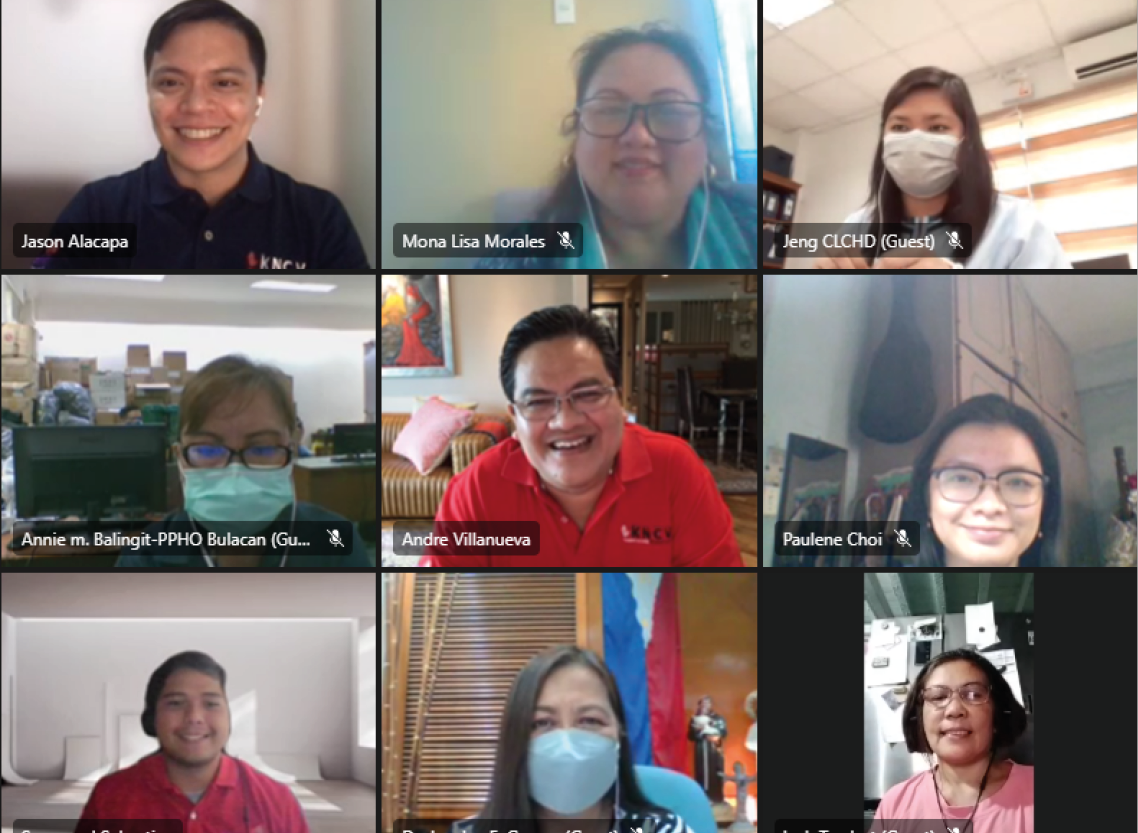During a recent virtual meeting, key tuberculosis (TB) partners jointly reviewed and updated the ASCENT differentiated care pathway for the use of digital adherence technologies (DAT) to support TB patients taking their medication. By providing differentiated care, ASCENT seeks to ensure that TB patients take their medication as prescribed and per schedule. The types of care supported by the ASCENT project are standardized and sequentially organized in what is called the differentiated care pathway.
The ASCENT project, led by KNCV Tuberculosis Foundation and funded by Unitaid, is a five-country initiative that includes the Philippines, Ethiopia, South Africa, Tanzania and Ukraine designed to build a scalable, affordable, evidence-based and DAT-informed patient-centered treatment support package for TB. At the consultation, representatives of the provincial health offices (PHOs) of Bulacan and Pampanga, the Department of Health Central Luzon Center for Health Development, the patient groups Samahan ng Lusog Baga Association Inc. (SLBAI) and TB Health Education and Livelihood Support (TB HEALS, Santa Maria, Bulacan chapter), and the Philippine Business for Social Progress – Advancing Client-centered Care and Expanding Sustainable Services for TB (PBSP-ACCESS TB) project examined the types of care in the original pathway, how they are carried out and by who.
Changes that were made
The meeting participants agreed that patients who missed three consecutive doses or with less than 80% adherence over the past 28 days warrant a home visit. After the first two missed doses, a health care worker (HCW) sends a reminder per call or SMS to the patient and the treatment partner. In the original differentiated care pathway, depending on the number of missed doses, HCWs or representatives from the provincial or regional health office made the visits to TB patients who struggle with their medication adherence. The local governments’ COVID-19 pandemic response and other health programs take up a lot of time and energy of HCWs. Therefore, as per now, these visits will be done by community members, including the barangay (village) health workers, community volunteers, members of the Barangay Health Emergency Response Team, the barangay kagawad (councilor) and the barangay TB point persons. “With their present workload in this time of the pandemic, it is challenging for the health facility staff to do home visits. We need to tap the community’s support,” Dr. Jocelyn Gomez, Provincial Health Officer from the Bulacan PHO, stated about this matter.
During the meeting it was also determined when patients should switch between DATs (e.g., from medication label to smart pillbox). This measure will be taken when a patient has more than 7 consecutive missed doses. Leah Tambot, president of SLBAI, asserted that “Patients should not be allowed to miss more than 14 doses before they are provided a DAT that suits their needs and allows them to continue their medication.”
All changes discussed during the meeting are now being implemented effective 1 October 2021 in 46 facilities in Bulacan and Pampanga in the Philippines, strengthening the DAT intervention and increasing the chances of a successfully completed treatment for TB patients.
The Unitaid funded and supported ASCENT project is led by KNCV Tuberculosis Foundation (KNCV) in partnership with The Aurum Institute, London School of Hygiene & Tropical Medicine (LSHTM), and PATH.
